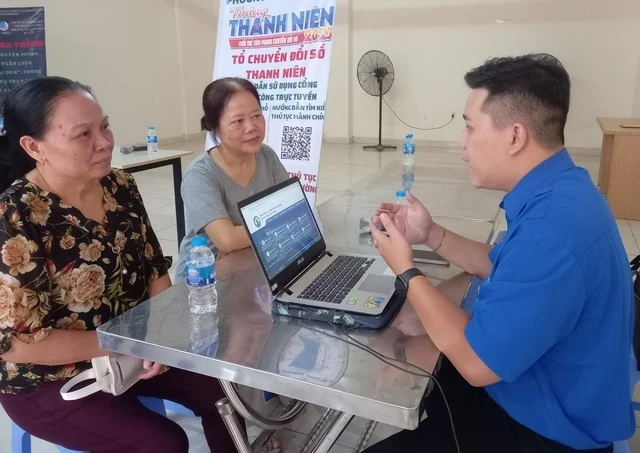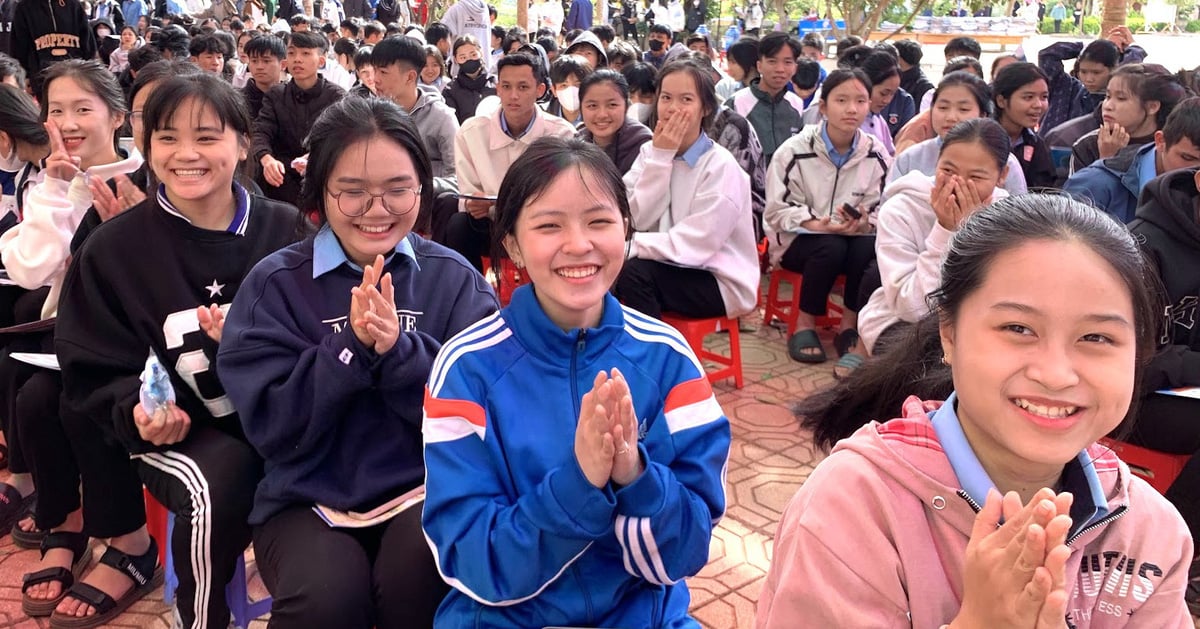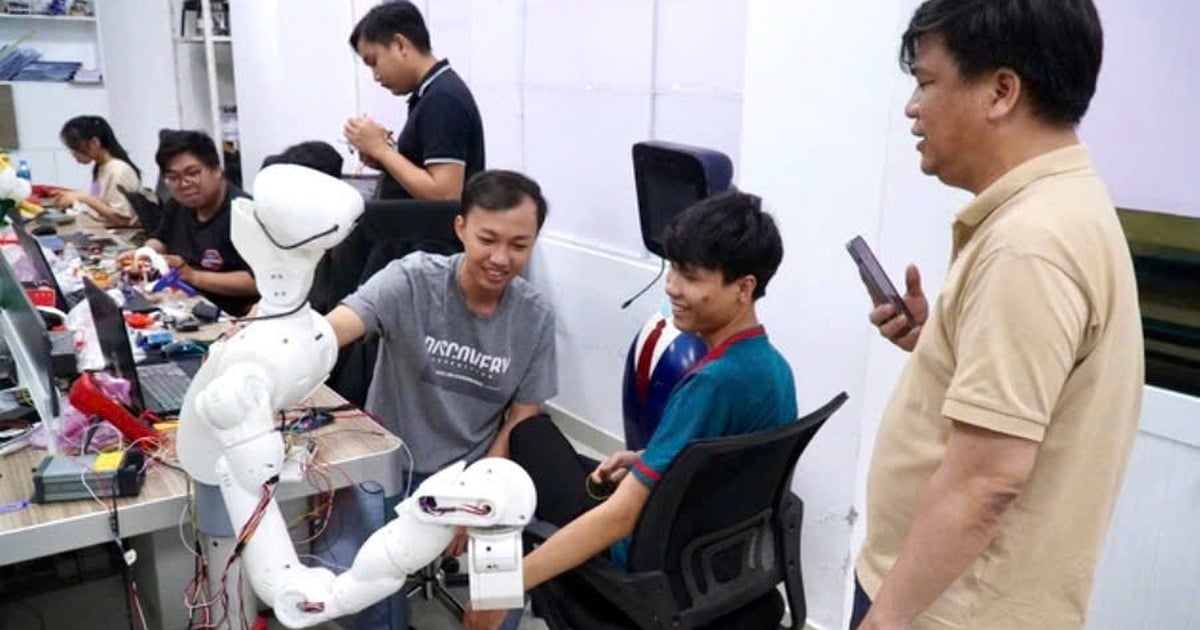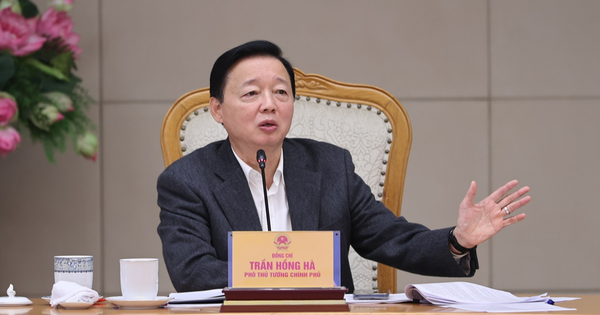Deputy Prime Minister Tran Luu Quang has just signed Decision No. 1690/QD-TTg approving the Project "Perfecting the organizational apparatus, enhancing state management capacity and law enforcement on digital transformation from the central to local levels by 2025, with a vision to 2030".

The digital transformation youth group model has brought many positive results.
The project to form a widespread digital transformation network from the central to grassroots levels with the participation of state agencies at all levels, organizations, businesses, and people aims to mobilize maximum social resources and attract all people to participate in national digital transformation (digital transformation network).
According to the Ministry of Information and Communications, this is the first time a digital transformation network from the central to the grassroots level, including the central, provincial, district, communal levels and community digital technology teams, has been established. The ministerial, provincial and district levels have increased their staffing from existing staffing sources for digital transformation, to carry out new tasks related to digital transformation. The Ministry of Information and Communications is the general coordinating agency for the digital transformation network.
In addition, the project builds, develops, and disseminates digital platforms and toolkits for nationwide unified use to serve state management and law enforcement on digital transformation.
Resources for implementing the project's tasks are guaranteed by the state budget. In particular, expenses for network coordination, operating costs, and maintenance of digital platforms and unified national toolkits are allocated from the regular state budget. Allocate sufficient resources to develop, operate, and maintain digital platforms and unified national toolkits to serve state management and law enforcement on digital transformation.
Strengthening digital transformation staff
The project sets out 5 goals: by 2025, 100% of ministries, ministerial-level agencies, government agencies and People's Committees of provinces and centrally-run cities will complete the organizational structure of specialized information technology units to enhance the implementation of new tasks and solutions on digital transformation.
100% of specialized information technology units of ministries, ministerial-level agencies, government agencies and People's Committees of provinces and centrally-run cities are allocated additional staff from the agency's assigned staff to meet the requirements of implementing new tasks and solutions on digital transformation.
100% of agencies and units under ministries, ministerial-level agencies, and government agencies; departments, branches, and sectors under the People's Committees of provinces and centrally-run cities; and People's Committees at district and commune levels focus on arranging departments or focal points to perform digital transformation tasks and solutions at agencies and units.
100% of organizations and individuals in the digital transformation network have access to and use digital platforms and tools that are used uniformly nationwide to serve state management and law enforcement on digital transformation.
Research, build, develop and disseminate digital platforms and toolkits for state management and law enforcement on digital transformation.
In addition, the project aims to establish a digital transformation network that operates effectively, closely connects, and coordinates synchronously in implementing national digital transformation tasks and solutions by 2030.
100% of the human resources performing digital transformation tasks from the central to local levels are annually trained and coached to improve their capacity, meeting the requirements of state management and law enforcement on digital transformation, in accordance with the standards of job titles and positions.
According to the Ministry of Information and Communications, in recent times, ministries, branches and localities have actively and made efforts to implement tasks and solutions to promote national digital transformation and have achieved important results. However, in addition to the achieved results, in reality, there are still certain shortcomings and limitations in digital transformation work at ministries, branches and localities. One of the shortcomings identified as "bottlenecks" that need to be promptly overcome is that the organizational apparatus and human resources for digital transformation are not yet synchronized, are still lacking and weak, have not met the needs in terms of quantity and quality, are unevenly distributed, and there is still a phenomenon of "brain drain".
The Prime Minister's approval of the Project "Perfecting the organizational apparatus, enhancing state management capacity and law enforcement on digital transformation from the central to local levels by 2025, with a vision to 2030" affirms the important role and position of the specialized unit on information technology and digital transformation at the central and local levels; at the same time, it demonstrates the determination of the Government and the Prime Minister towards the national digital transformation.
Source link
































































Comment (0)